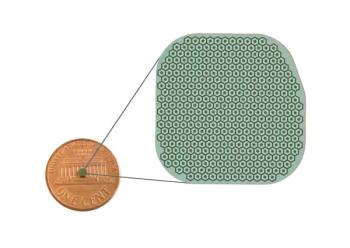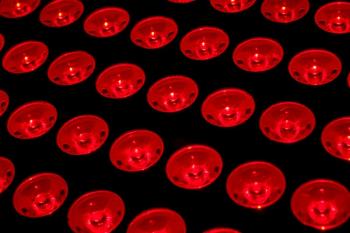
Bepotastine besilate 1.5% T.I.D. well tolerated by children, study shows
Bepotastine besilate ophthalmic solution 1.5% is safe and well-tolerated in healthy children as young as 3 years of age, according to results from a new study.
Data from the study investigating ocular comfort and safety of bepotastine besilate in normal subjects were summarized in a poster presented at the annual meeting of the American College of Clinical Pharmacy. Eugene E. Protzko, MD, was an investigator and the lead author of the poster.
"Bepotastine besilate is a newer ocular anti-allergy agent with multimodal mechanisms of action, including potent and selective H1 receptor inhibition, mast cell stabilization, and inhibition of eosinophil migration. Efficacy of any agent used to control seasonal allergic conjunctivitis depends on patient compliance and tolerability. Bepotastine facilitates ongoing usage because it has a relatively simple twice daily dosing schedule, is comfortable on instillation, and has a good safety profile," said Dr. Protzko, a private practitioner in Bel Air, MD.
The 6-week study included 861 pediatric and adult patients aged 3 years and older who were randomized 2:1 to B.I.D. treatment with bepotastine besilate or placebo. Daily dosing diaries were used to monitor compliance. Ocular comfort was evaluated by self-rating performed immediately after and 5 minutes post-instillation of the study medication at two in-office follow-up visits (1 week and 3 weeks post-randomization). Safety was determined by findings at slit-lamp examination 15 minutes after drop instillation and review of reported adverse events.
A total of 87 children aged 3 to 17 years were treated with bepotastine besilate, and there were 40 pediatric patients randomized to placebo. The results showed no clinically or statistically significant differences between bepotastine besilate and placebo in mean comfort scores at any of the assessment intervals. In addition, the frequency and type of adverse events was similar in the two treatment groups, and there were no severe or serious adverse events recorded in the pediatric or adult populations during the course of the study.
Of the 575 patients randomized to bepotastine, 47 were in the 3- to 9-year-old age range (mean age 5.7 years) and 40 were aged 10 to 17 years (mean age 12.8 years). The overall study population was comprised predominantly of Caucasians, and there was a slight majority of males. Only 1 of 87 children randomized to bepotastine withdrew from the study, but the reason was unrelated to medication use.
Ratings scale
Study participants used a 0 to 3 grading scale with 0.5 unit increments to rate ocular comfort, with 0 representing comfortable and each increasing increment up to 3 representing increasing discomfort. In both the bepotastine and placebo groups, mean ocular comfort scores were slightly worse immediately after instillation compared with 5 minutes later and at the second follow-up visit compared with the first. However, the mean comfort scores were very low overall, ranging from just 0.01 at 5 minutes post-instillation of bepotastine at the first follow-up visit to a maximum of 0.17 immediately after instillation of placebo at the second follow-up.
"According to the rating scale used, a score of 0 represents comfortable with no discomfort and a score of 1 indicates generally comfortable, only mild discomfort. The majority of scores recorded showed that patients overall found bepotastine besilate comfortable, with none experiencing anything more than mild discomfort," said Dr. Protzko.
Review of the dosing diaries showed high compliance with both bepotastine besilate and placebo among children aged 3 to 9 years old, those in the 10- to 17-year-old age bracket, and for the overall study population. According to the diary information, the average patient within each of these subgroups received at least 80 of the 84 expected doses.
"This high level of compliance in a pediatric population can be another indicator of the tolerability, comfort, and safety of bepotastine besilate," Dr. Protzko said.
Adverse events were reported for 20% of patients aged 3 to 9 years in both the bepotastine besilate and placebo groups and by about 8% of children aged 10 to 17, regardless of treatment assignment. Of 9 adverse events reported by children aged 3 to 9 years treated with bepostastine, mild taste was the most common (6 reports). A single case of punctate keratitis was the only eye disorder. Mild taste accounted for all 4 adverse events reported by bepotastine besilate-treated patients aged 10 to 17 years.
FYI
E. Protzko, MD
E-mail:
Dr. Protzko has no financial interests in the subject matter.
Newsletter
Want more insights like this? Subscribe to Optometry Times and get clinical pearls and practice tips delivered straight to your inbox.



























